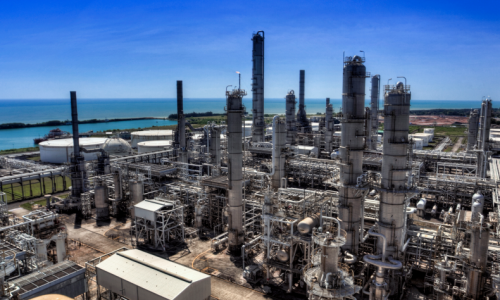Automotive component company PT Dharma Polimetal Tbk (DRMA) has set its Capital expenditure (Capex) for 2023 at IDR 500 billion, which will be used to expand its subsidiaries.
Established in 1989, Dharma is the head company in the Dharma Group. Dharma Group is also the subsidiary of Triputra Group in the manufacturing of automotive components, especially cars and motorcycles, harness cables and other electrical components, plastics, precision cutting equipment, motorcycle exhaust ports, and others. The company is also a well-known supplier to Honda, Hyundai, Toyota, Suzuki and other automotive companies in Indonesia and abroad.
Currently, in 2023, the company has subsidiaries as follows:
- PT. Dharma Controlcable Indonesia 82.33%;
- PT. Dharma Electrindo Manufacturing and subsidiary 99.99%;
- PT. Dharma Poliplast 55%;
- PT. Dharma Precision Parts 85%;
- PT. Dharma Precision Tools 99.99%;
- PT. Saikono Otoparts Indonesia 99.99%.
Optimism in 2023 on revenue and expansion
Dharma started its business expansion on December 22, 2022. Its IDR 500 billion Capex is set for the expansion, which includes the development and construction of PT Dharma Precision Parts (DPA) factory and PT Dharma Controlcable Indonesia (DCI), machine and tooling maintenance, and production capacity and technology increase for PT Dharma Electrindo Manufacturing (DEM).
In 2022, the company’s Capex only reached IDR 240 billion for the construction of a new factory located in Dharma Headquarters in Bekasi regency. Its progress now has reached 90% and by the end of Q1 2023, it will be operational. The company also uses the Capex for land acquisition.
Dharma also announced the acquisition of a car and motorcycle spare parts company, PT Trimitra Chitrahasta (TCH), with 72.75% shares, which is part of Kuroda Group Co. Ltd., on December 22, 2022. There is no further information on the progress of the acquisition.
The acquisition of the company will enhance the Dharma’s production capacity as well its marketing capabilities, which will increase its sales. Dharma is optimistic the acquisition will bring positive outcomes for the production and sales.
“Of course, it will increase the company’s production capacity, as well as add to the marketing network of TCH customers. This acquisition will increase Dharma sales in the future,” President Director Irianto Santoso said on January 4, 2023, as quoted by Kontan.co.id.
The acquisition is also considered as part of Dharma’s strategy in the automotive components in 2023. On the other hand, Dharma is also continuing its development and construction of support equipment for electric vehicles (EV) and preparing the launching of EV supporting products such as battery pack components for 4-wheeled vehicles, EV ecosystems, and charging stations for two- and four-wheeled vehicles.
In 2023, Dharma is optimistic to reach its revenue growth target of 20%. The company has estimated revenue in 2023 to reach IDR 4.2 trillion. One of the factors to help increase the revenue is the component productions for Toyota and Daihatsu, Santoso said.
He added that there were a lot of growth prospects for automotive industry in Indonesia due to the growing economy.
Risk in automotive industry
Since the impact of the COVID-19 pandemic is still present, it has caused several downturns in the automotive industry in Indonesia. According to the Association of Indonesian Automotive Manufacturers (Gaikindo), there were a serious problem in the fuel price and the scarcity of chips that affect the production rate. Meanwhile, the Indonesian Chamber of Commerce and Industry (Kadin), the high production costs hinders the industry even further.
Significant impacts on the industry includes the scarcity of raw materials, fuel price, raw material prices, and semiconductor chips that do not meet the supply needs.
Automotive component engines had been made domestically but were quite expensive while the labor wages were still fairly uncompetitive, said Kadin Deputy Chairman Johnny Darmawan in 2019.









